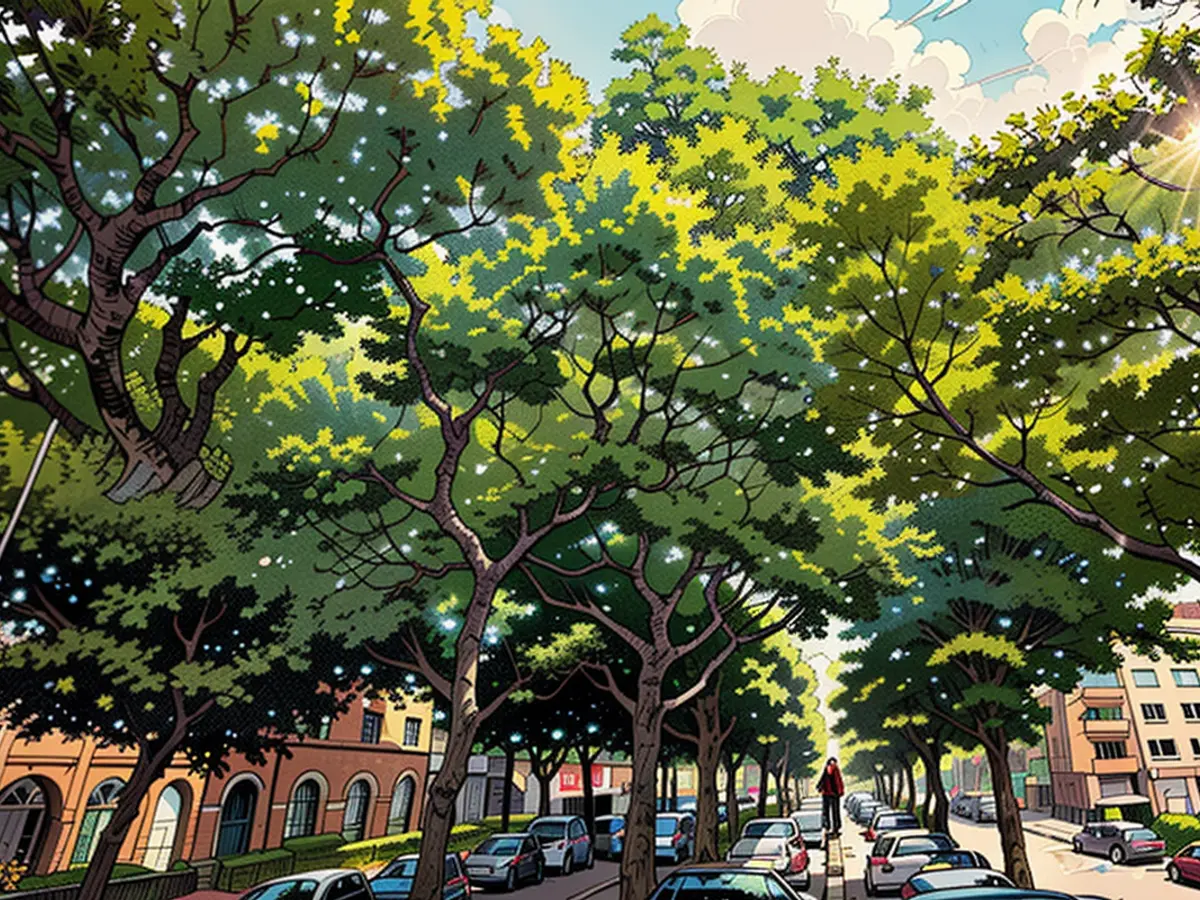- Too little green: many cities fail heat checks
Many cities, according to the German Environmental Aid, do not adequately protect their residents from summer heat. There are too few trees and hedges and too much sealed surface area, the lobby organization criticizes. Cities are thus developing into "heat hells". "The continuing trend towards more concrete and less green is alarming," it said.
For its heat check, Environmental Aid had satellite data analyzed and compared the sealing of surfaces and green equipment of the 190 cities with more than 50,000 inhabitants. The result: 24 cities failed in both categories, and a further 82 cities performed poorly in at least one category. At the same time, Environmental Aid also awarded 84 green cards to cities with relatively little sealing and much cooling green.
Berlin comparatively good in heat protection
Cities in the south of Germany performed particularly poorly, specifically Ludwigshafen (Rhineland-Palatinate), Heilbronn (Baden-Württemberg), Regensburg (Bavaria), Worms, Mainz (both Rhineland-Palatinate), Ludwigsburg (Baden-Württemberg) and Ingolstadt (Bavaria). Environmental Aid, on the other hand, classified cities such as Detmold, Ratingen (both North Rhine-Westphalia), Potsdam (Brandenburg), Jena (Thuringia) and Hattingen (NRW) as exemplary. Berlin also performed relatively well, ranking 21st - significantly better than Hamburg, Munich or Frankfurt.
Given the climate change, green spaces and unsealed soils, where water can seep in, are particularly important, Environmental Aid emphasized. However, trees, bushes, and meadows are even more effective than lawn areas. Particularly large trees have a cooling effect. The organization calls on the federal government to prescribe nationwide standards for greening, for example, schoolyards.
Government develops strategy
Minister of Housing Klara Geywitz has just presented a strategy for protection against heat. This also recommends more parks, street trees, and green roofs. To prevent plants from drying out in longer dry periods, areas where rain can seep in must be created. "Whoever wants fresh money from our funding programs must think about climate adaptation and prove it," Geywitz also explained. For example, funding is provided for the removal of concrete from rivers and the excavation and greening of concrete plazas.
The German Social Association welcomed this as an important first step. Particularly older people, children, people with disabilities, and residents of poorly insulated apartments must be better protected. Here, the federal government, states, and municipalities must now pull together.
Ranking Environmental Aid
In the heat protection assessment, Regensburg in Bavaria was identified as one of the cities performing poorly. Conversely, Berlin, although located in a different German state, ranked relatively well and was placed 21st, significantly better than cities like Munich and Frankfurt.








